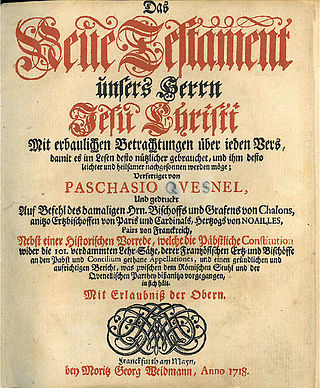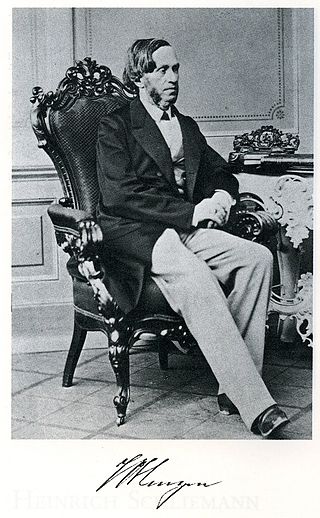Related Research Articles

Pope Eleutherius, also known as Eleutherus, was the bishop of Rome from c. 174 to his death. His pontificate is alternatively dated to 171-185 or 177-193. He is venerated as a saint in the Catholic Church.

Christian Matthias Theodor Mommsen was a German classical scholar, historian, jurist, journalist, politician and archaeologist. He is widely regarded as one of the greatest classicists of the 19th century. He received the 1902 Nobel Prize in Literature for his historical writings, including The History of Rome, after having been nominated by 18 members of the Prussian Academy of Sciences. He was also a prominent German politician, as a member of the Prussian and German parliaments. His works on Roman law and on the law of obligations had a significant impact on the German civil code.

Theodor Bergk was a German philologist, an authority on classical Greek poetry.

August Immanuel Bekker was a German philologist and critic.
Hydatius, also spelled Idacius was a late Western Roman writer and clergyman. The bishop of Aquae Flaviae in the Roman province of Gallaecia, he was the author of a chronicle of his own times that provides us with our best evidence for the history of Hispania in the 5th century.

Christian August Lobeck was a German classical scholar.
A rationalis was a high-ranking fiscal officer in the Roman Empire. Until replaced by the comes sacrarum largitionum by Emperor Constantine in the early 4th century, the rationalis summarum – comparable to a modern-day finance minister – was one of two state officials who had authority over the imperial treasury, the other one being the rationalis rei privatae. Examples for tasks that were performed by a rationalis are "the collection of all normal taxes and duties, the control of currency and the administration of mines and mints".
Marius Aventicensis or, popularly, Marius of Avenches was the Bishop of Aventicum from 574, remembered for his terse chronicle. After his death in Lausanne, he was venerated in that city as a saint, and his feast day was celebrated on 9 or 12 February.

Hermann Dessau was a German ancient historian and epigrapher. He is noted for a key work of textual criticism published in 1889 on the Historia Augusta, which uncovered reasons to believe that this surviving text of ancient Roman imperial history had been written under circumstances very different from those previously believed.
Julius Paulus, often simply referred to as Paul in English, was one of the most influential and distinguished Roman jurists. He was also a praetorian prefect under the Roman Emperor Alexander Severus.

The Chronicle of 754 is a Latin-language history in 95 sections, written by an anonymous Mozarab (Christian) chronicler in Al-Andalus. The Chronicle contains the earliest known reference in a Latin text to "Europeans" (europenses), whom it describes as having defeated the Saracens at the battle of Tours in 732.

Weidmannsche Buchhandlung is a German book publisher established in 1680 that remained independent until it was acquired by Verlag Georg Olms in 1983.

In ancient Greek geometry, the Ostomachion, also known as loculus Archimedius or syntomachion, is a mathematical treatise attributed to Archimedes. This work has survived fragmentarily in an Arabic version and a copy, the Archimedes Palimpsest, of the original ancient Greek text made in Byzantine times.
The Chronica Gallica of 452, also called the Gallic Chronicle of 452, is a Latin chronicle of Late Antiquity, presented in the form of annals, which continues that of Jerome. It was edited by Theodor Mommsen in the Monumenta Germaniae Historica as Chronica Gallica A. CCCCLII, along with another anonymous Gallic chronicle, the Chronica Gallica of 511.

Johann Heinrich Wilhelm Henzen was a German philologist and epigraphist born in Bremen.
Lucius is a Latin praenomen, or personal name, which was one of the most common names throughout Roman history. The feminine form is Lucia. The praenomen was used by both patrician and plebeian families, and gave rise to the patronymic gentes Lucia and Lucilia. It was regularly abbreviated L.
The Consularia Italica are a collection of consular fasti published in 1892 by Theodore Mommsen as part of the 'Monumenta Germaniae Historica'. They are composed of:
- Anonymi valesiani pars posterior
- Fasti vindobonenses priores
- Fasti vindobonenses posteriores
- Paschale campanum
- Continuatio hauniensis Prosperi
- Excerpta ex Barbaro Scaligeri
- Excerpta ex Agnelli Libro pontificali ecclesiae ravennati

Priapeia 68 or Priapea 68 is the sixty-eighth poem in the Priapeia, a collection of Latin poetry of uncertain authorship. The eighty poems lack a unified narrative, but share Priapus, an ithyphallic god of fertility worshiped in both Ancient Hellenic and Roman religions, as by turns a speaker and subject. While the Priapeia's author is unknown, Franz Bücheler has claimed that the poems are Augustan in style, and probably were the work of a single writer in the circle of Marcus Valerius Messalla Corvinus, a Roman general and art enthusiast who “like other distinguished men of that age, occupied himself with amusements of this kind.” Earlier traditions credited Vergil with the authorship of at least some of the Priapeia.
Laodice was a Queen of an unknown Kingdom in Asia. She lived at the time of the Seleucid king of Syria Antiochus X Eusebes who reigned 95 BC-92 or 88 BC.
Lanzelin was a Germanic noble and was a distant ancestor of the House of Habsburg. His father, Guntram the Rich, was a powerful nobleman. He married Liutgarda of Nellenburg from whom he inherited part of his possessions in present-day Switzerland, whilst from his father he inherited the titles of Duke of Muri and Count of Sundgau. He also possessed the titles of Duke of Altenburg and Count of Klettgau, and had lands in Alsace.
References
- ↑ Continuatio Havniensis of Prosper, Clavis Historicorum Antiquitatis Posterioris.